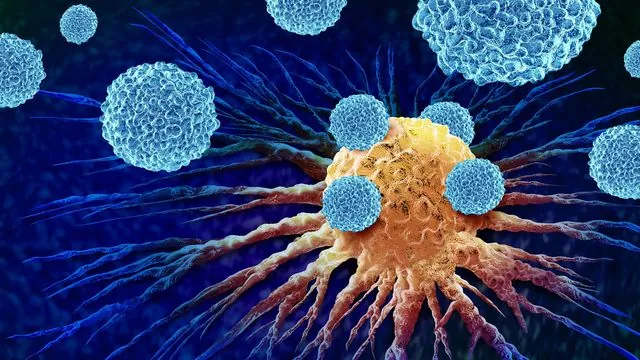
Breakthrough Research Reveals Promising New Target for Cancer Immunotherapy
2024-12-16
Author: Daniel
Breakthrough Research Reveals Promising New Target for Cancer Immunotherapy
In an exciting development, researchers at Monash University have uncovered innovative methods for cancer immunotherapy that could dramatically enhance the effectiveness of treatments. This groundbreaking study focuses on utilizing the body’s immune system, a process that has already transformed the landscape of cancer treatment.
Cancer immunotherapy aims to empower T cells—key players in the immune response—to effectively seek and destroy cancer cells. However, several inhibitory molecules can hinder T cell activity, limiting their ability to fight off tumors. This new research investigates ways to minimize these restrictions, leading to more potent immunotherapeutic strategies.
Published in the prestigious journal Science Immunology, the study explores the intricate structure of an inhibitory molecule known as LAG3 and its interaction with the human HLA-II molecules. This research marks a significant milestone, as it presents the first-time visualization of the human LAG-3/HLA-II complex, paving the way for improved therapies targeting this pathway.
Professor Jamie Rossjohn, leading the research at Monash University’s Biomedicine Discovery Institute (BDI), highlighted the significance of the findings. "While the interactions of other immune checkpoint molecules like PD-1 and CTLA-4 have been well-documented, the relationship between LAG-3 and HLA-II has remained largely underexplored. Our findings resolve this and open the door for the development of targeted therapies that can inhibit LAG-3 activity," he stated.
The research team utilized advanced techniques at the Australian Synchrotron to elucidate the structural details of the LAG-3/HLA-II complex. This vital information lays the groundwork for the design of antibodies and small-molecule drugs that could prevent LAG-3 from impeding T cell functions, thereby boosting the immune response against cancer.
Dr. Frédéric Triebel, Chief Scientific Officer at Immutep, a collaborator in the study, emphasized the importance of these discoveries. "This research provides a stronger foundation for our ongoing efforts to develop anti-LAG-3 therapies, helping us to understand the intricate mechanisms of immune regulation in cancer treatment better."
This advancement offers hope to cancer patients and could significantly impact the future of personalized medicine, as researchers continue to unlock the complex interactions within the immune system. As this exciting field progresses, the potential for more effective and targeted immunotherapies could become a reality, revolutionizing how we fight cancer.
Stay tuned as we follow the latest updates on this research and its implications for the future of cancer therapy!



 Brasil (PT)
Brasil (PT)
 Canada (EN)
Canada (EN)
 Chile (ES)
Chile (ES)
 España (ES)
España (ES)
 France (FR)
France (FR)
 Hong Kong (EN)
Hong Kong (EN)
 Italia (IT)
Italia (IT)
 日本 (JA)
日本 (JA)
 Magyarország (HU)
Magyarország (HU)
 Norge (NO)
Norge (NO)
 Polska (PL)
Polska (PL)
 Schweiz (DE)
Schweiz (DE)
 Singapore (EN)
Singapore (EN)
 Sverige (SV)
Sverige (SV)
 Suomi (FI)
Suomi (FI)
 Türkiye (TR)
Türkiye (TR)